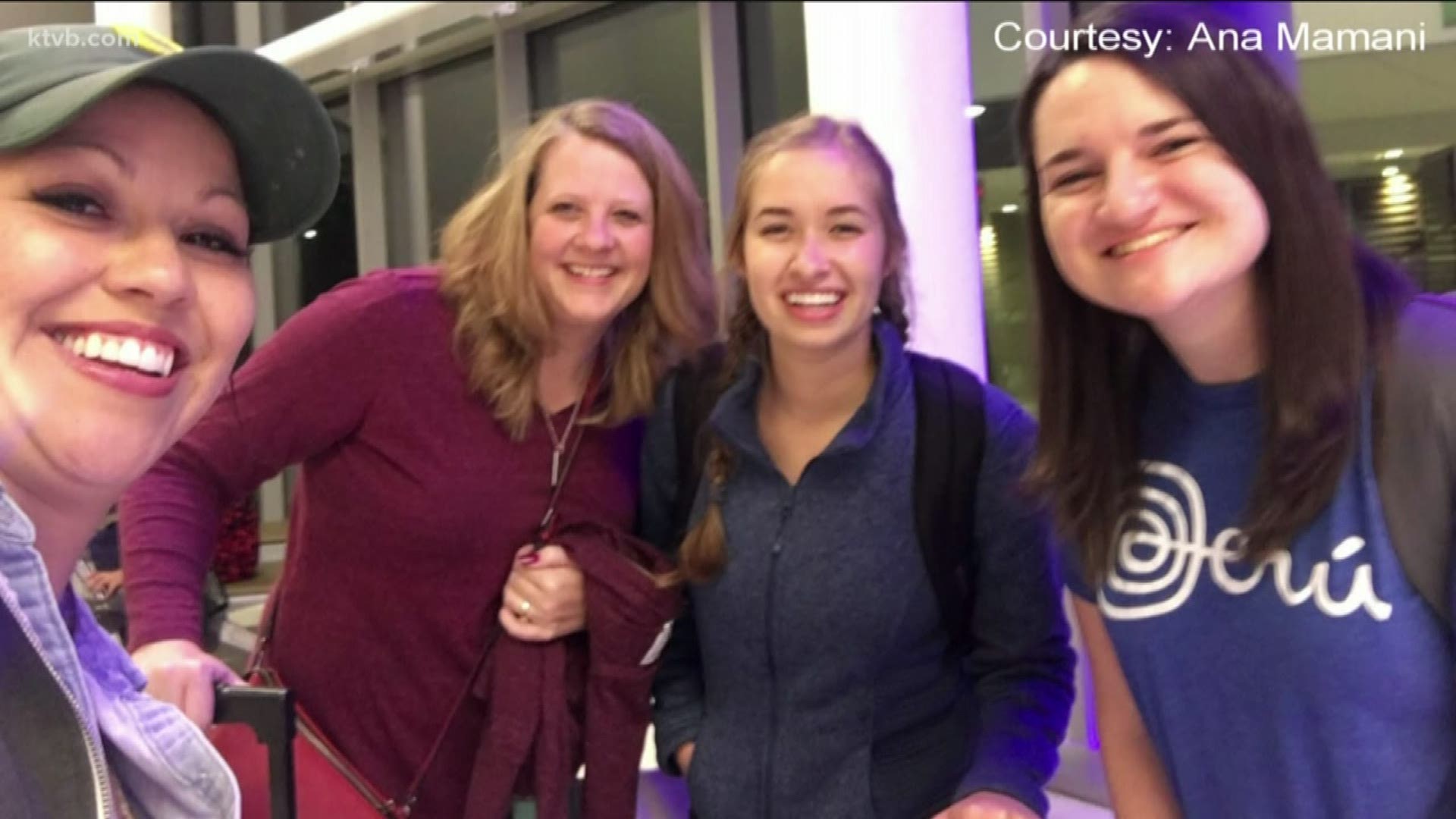BOISE, Idaho — The number of migrants detained at the United States-Mexico border has more than doubled in the last year, according to U.S. Customs and Border Protection data. As more people seek asylum in the United States, two Boise attorneys traveled to the Texas-Mexico border to help women and children with the asylum process.
In November, Natalie Greaves and Ana Mamani spent a week in Dilly, Texas to help with refugees at the border. The two attorneys said the experience is something they won't forget.
The two work for Boise Law Group and stayed in Dilly, where the largest U.S. detention center is for women and children who cross into the country.
They worked to help those seeking asylum with the first stage of the process - getting an interview in order to try and get a hearing to be able to stay in the U.S.
"Honestly, this experience was pretty traumatic. It's taken a couple of months to kind of get equilibrium again," Greaves said.
Greaves and Mamani traveled with a group of 26 other volunteers but were the only Idahoans in the group. They both agree that the experience was eye-opening.
"Any time a woman is repeatedly raped, stalked, stabbed with a screwdriver, beat with a stick, impregnated by a police officer - I mean those things stick with you," Mamani said.
Greaves explained that the people they helped weren't breaking any laws by seeking asylum.
"I do think there's that misconception that this is illegal somehow to come to the border and ask for help. But it's not. This is not illegal immigration – this is legal immigration," she said.
In Mamani's opinion, the current asylum process can be frustrating because she says it's punishing people for asking for help.
"I think that's the most frustrating thing is they're doing everything the government asked them to do," she said. "They are presenting at the border, they are asserting they're fleeing for fear of persecution. And then we're essentially locking them up."
While many of the migrant women at the border are fleeing from threats, abusive family members, or have been separated from their spouse and children, they're still kind to those that are helping them.
"One of the things that came through to me is how humble and sweet and strong these women are," Greaves said. "They don't feel strong when they come – they feel weak."
Mamani still remembers one young girl who had no personal possessions but still found a way to say thank you to her.
"She approached me and she gave me a little sticker and I kept asking her 'Are you sure?'" she said. "They look at you like you are a superhero."
Greaves said in one year, the rate of acceptance for these women to even have a chance to stay in the United States dropped from 98% to under 50%.
Both attorneys said the hardest part was leaving and knowing how many more women and children need help.
"We're putting women and children in even worse situations by sending them back," Mamani said. "In many cases, it's a death sentence."

